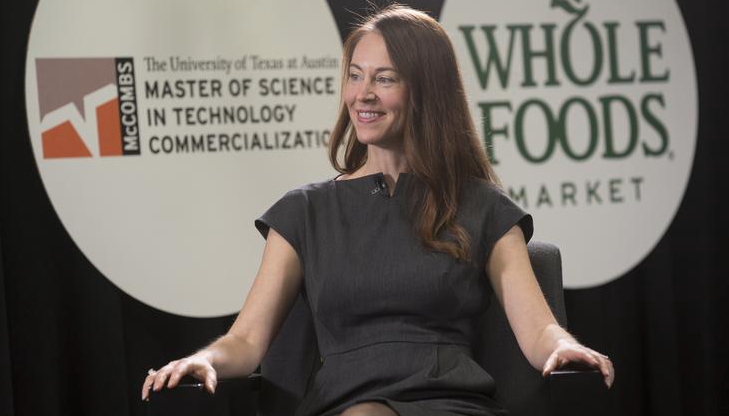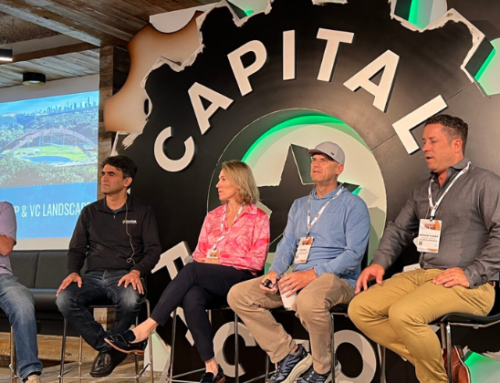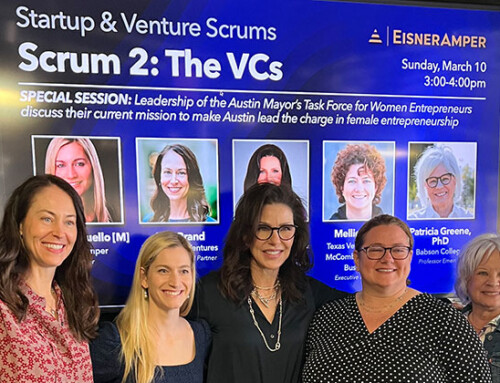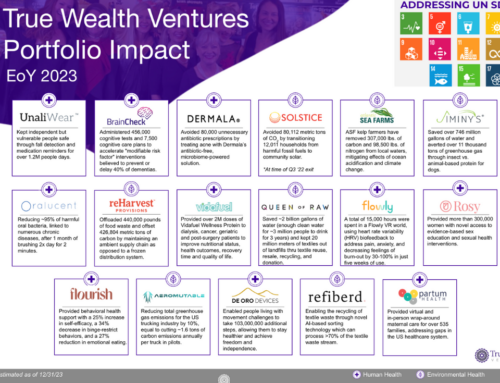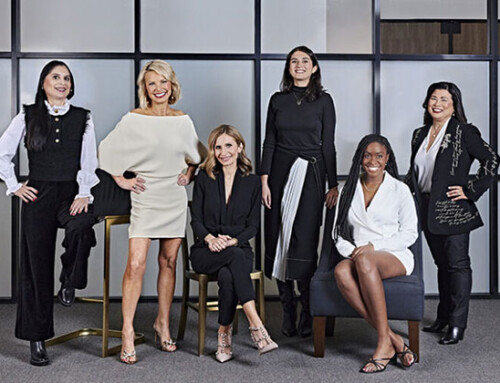By Mike Cronin – Staff Writer, Austin Business Journal
Reams of data in recent years demonstrate businesses perform better and returns on investment are higher when women are among a company’s executive team and in decision-making positions at venture capital firms.
Still, that hasn’t helped women startup founders obtain additional VC funding or increased the number of women becoming VC partners.
Sara Brand proposed a two-step solution Tuesday during the Austin Business Journal’s monthly Face 2 Face interview series.
“We need to get more women starting funds and investing,” said Brand, founding general partner of True Wealth Ventures, an Austin venture capital firm that focuses on investing in early-stage, women-led startups in the consumer health and sustainable products sectors.
Yet “that takes a while,” Brand told the audience at Whole Foods Market Inc.’s downtown headquarters. It can take decades, she said, for women to be at a point when they can start their own funds.
Brand also recommends a more flexible approach by institutional investors.
“I think they should write smaller checks and take on more risk if we want to see change,” said Brand, who earned a doctorate in mechanical engineering from the University of California, Berkeley.
That, too, however, will take a “couple decades” before a shift becomes apparent, she added.
The unfortunate reality outlined by the former executive at semiconductor maker Advanced Micro Devices Inc. is that the total of female VC partners has declined from about 10 percent in 1999 to a single-digit percentage in 2016.
What’s more, women-led startups last year obtained just 2.2 percent of all VC funding, Brand said, citing statistics from PitchBook, a Seattle company that tracks mergers and acquisitions, private equity and venture capital.
That type of discrimination was part of a June ABJ cover story investigation of the challenges women face in Austin’s tech scene: “For women in Austin tech, silence isn’t golden when facing ingrained sexism.”
Still, Brand and True Wealth Partner Kerry Rupp are making headway. That 80 percent of the fund’s investors are women is “unheard of” and “a national story,” Brand said.
Since its 2015 founding, True Wealth has funded two startups and continues to raise money to achieve its $20-million goal. Its first fund will close at the end of January 2018. Brand and Rupp plan to complete 12 deals during the next three to four years, with a focus on Texas-based companies.
True Wealth invested $500,000 in 2016 in Jean Anne Booth’s Austin-based UnaliWear Inc., which has developed a smart watch for senior citizens or anyone with physical limitations.
It also led a May $1.5 million investment in Houston-based BrainCheck Inc., maker of software that measures brain health, with $400,000 worth of funding.
In choosing the startups True Wealth funds, Brand said the company must have at least one woman who has significant decision-making authority. She pointed to a 2016 Harvard Business Review study that women-led startups chance of an exit mushroom by 32.1 percent when women VCs invest in them.
Companies also must have a strategy that includes an exit within three to five years, Brand said.
If she could have done anything differently earlier in her career — which also included technical positions at companies such as Intel Corp., management consulting at McKinsey & Company Inc. in San Francisco and co-founding Austin’s (512) Brewing Co. with her husband — Brand said she would have been a better role model for women in the professional world and educating men about what it took to balance things.
“I would have shown other women how I did it,” Brand said of being a tech executive, an entrepreneur and a mother.
That encompassed paying for fulltime child care, always having a “Plan B” and a “Plan C” and viewing life-work balance “over a lifetime,” rather than always in the present.
“You have to give things up” in order to reach different aspirations, Brand said. Such sacrifices include money spent on fulltime childcare and viewing it as an investment in the earning potential of her career over the long term, compared to leaving then returning to the workforce.
And those sacrifices include time.
Said Brand, “Happiness is linked with purpose — not just the amount of stress.”
Original article here.

